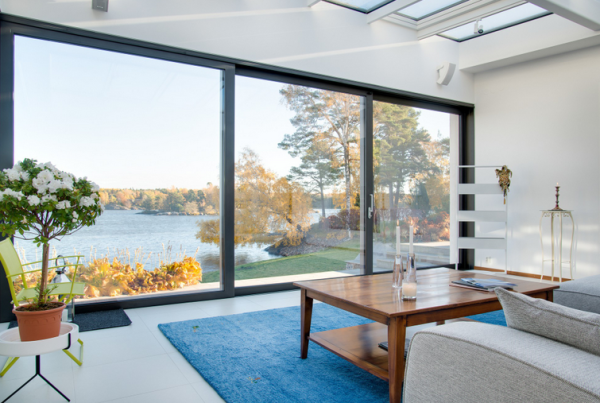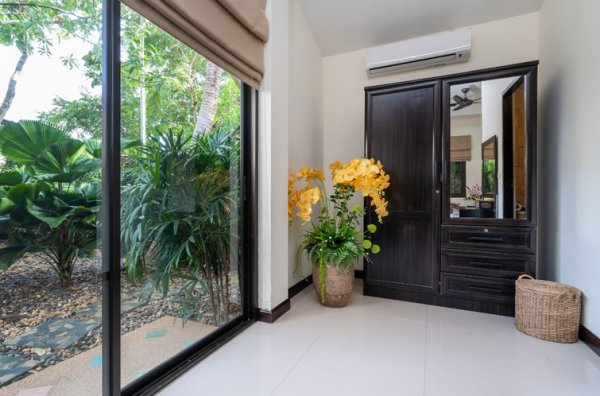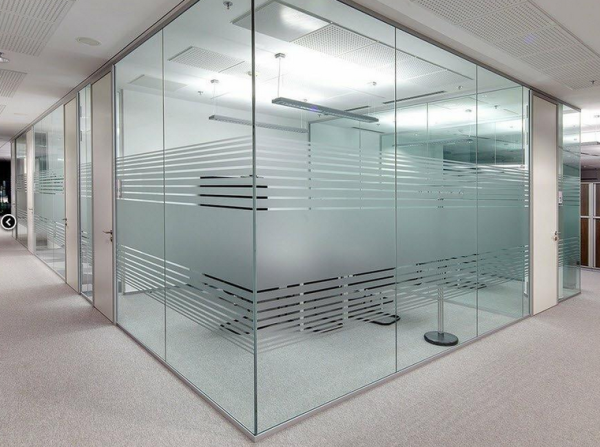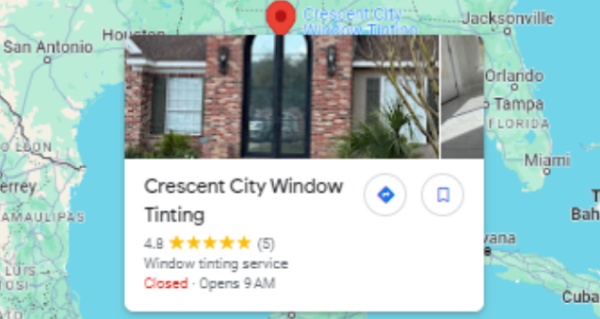
An invaluable resource for homeowners seeking to enhance their living spaces with cutting-edge window tinting solutions. With years of expertise in the industry, Crescent City Window Tinting has meticulously compiled this guide to empower homeowners with the knowledge they need to make informed decisions about window tinting for their residences. From understanding the benefits of window tinting to selecting the right tint for specific needs, this guide covers every aspect of the process, ensuring that homeowners can achieve both style and functionality in their homes. Whether it's for privacy, energy efficiency, or UV protection, Crescent City Window Tinting is dedicated to providing unparalleled expertise and service to clients, making home window tinting a seamless and rewarding experience.
Understanding Home Window Tinting
Home window tinting involves the application of a thin, transparent film to the interior surface of residential windows. Made from polyester, this film may incorporate layers of metals, dyes, or ceramics to achieve desired properties such as heat rejection, UV protection, glare reduction, and privacy enhancement. Professional installers carefully measure, cut, and apply the film to each window, ensuring a seamless finish that complements the home's architectural aesthetics. Advanced technologies provide homeowners with diverse options to meet their specific needs.
Benefits of Home Window Tinting
-
Energy Efficiency: Tinted windows help regulate indoor temperatures by minimizing heat transfer through windows. This translates to reduced reliance on heating and cooling systems, leading to lower energy bills and decreased carbon footprint.
-
UV Protection: Window films block up to 99% of harmful UV rays, safeguarding your family and furnishings from sun damage. This prevents fading of furniture, flooring, and artwork, preserving the beauty and longevity of your interior décor.
-
Glare Reduction: Tinted windows reduce glare caused by direct sunlight, providing a more comfortable indoor environment for reading, working, or watching television without straining your eyes.
-
Privacy Enhancement: Certain types of window films offer enhanced privacy by limiting visibility from the outside while maintaining clear views from within. This is particularly beneficial for homes situated in close proximity to neighbors or busy streets.
-
Security Enhancement: Thick, shatter-resistant window films strengthen glass, making it more difficult for intruders to break in. In the event of accidental breakage, the film holds shattered glass fragments together, reducing the risk of injury.
-
Enhanced Aesthetics: Window tinting adds a touch of sophistication to any home, enhancing curb appeal and elevating its overall aesthetic value. With a variety of tint shades and finishes available, homeowners can customize their windows to reflect their personal style.
Factors to Consider Before Tinting Home Windows
-
Local Climate: Climate conditions such as temperature fluctuations, humidity levels, and sun exposure patterns play a significant role in determining the type of window film best suited for your home.
-
Window Orientation: The orientation of your windows (e.g., north-facing, south-facing) affects the amount of sunlight they receive throughout the day. East and west-facing windows may require higher heat rejection films to combat intense morning or afternoon sunlight.
-
Architectural Style: The architectural style of your home influences the design and placement of windows. Traditional or historic homes may require window films that preserve the original aesthetic while modern homes may benefit from sleek, contemporary finishes.
-
Budget: Establishing a budget for your window tinting project is crucial. Consider the cost of materials, installation fees, and long-term savings on energy bills when determining the overall investment.
-
Warranty and Durability: Choose window films backed by reputable manufacturers with comprehensive warranty coverage. Ensure that the selected film is durable, scratch-resistant, and capable of withstanding environmental elements for years to come.
Types of Window Films for Home Tinting

-
Solar Control Films: Solar control films are designed to block heat, glare, and UV rays while allowing visible light to pass through. They help regulate indoor temperatures and reduce reliance on air conditioning, resulting in energy savings.
-
Privacy Films: Privacy films provide enhanced privacy by obscuring visibility from the outside without compromising natural light transmission. They are available in various opacities and patterns to suit different levels of privacy needs.
-
Decorative Films: Decorative films add a decorative element to windows, transforming plain glass surfaces into works of art. They are available in a wide range of designs, textures, and colors, allowing homeowners to customize their windows to match their interior décor.
-
Safety and Security Films: Safety and security films are designed to reinforce glass and prevent shattering upon impact. They provide an added layer of protection against forced entry, accidents, and severe weather events.
-
Low-E Films: Low-emissivity (Low-E) films are engineered to improve insulation and reduce heat loss during the winter months. They help maintain consistent indoor temperatures year-round, enhancing overall comfort and energy efficiency.
The Installation Process
-
Initial Consultation: The process begins with an initial consultation with a window tinting specialist. During this consultation, the specialist assesses your needs, evaluates your windows, and recommends the most suitable film options.
-
Surface Preparation: Prior to installation, the window surfaces must be thoroughly cleaned and prepped to ensure proper adhesion of the film. Any dirt, dust, or debris is removed, and the windows are dried completely.
-
Film Cutting: The selected window film is custom-cut to fit each window's dimensions precisely. Advanced cutting techniques ensure a perfect fit and minimize the need for trimming during installation.
-
Application: The window film is carefully applied to the interior surface of the glass using a specialized adhesive. Installers use squeegees or soft rubber tools to remove air bubbles and ensure smooth, uniform adhesion.
-
Final Inspection: Once the film is applied, installers perform a final inspection to ensure that the installation is flawless and meets the highest quality standards. Any remaining air bubbles or imperfections are addressed promptly.
-
Curing Period: After installation, the window film requires a curing period to fully adhere to the glass. During this time, it's essential to avoid touching or cleaning the film to allow it to set properly.
Maintaining Tinted Windows
-
Regular Cleaning: Clean tinted windows regularly using a mild detergent and soft, non-abrasive cloth or sponge. Avoid using ammonia-based or abrasive cleaners, as they can damage the film.
-
Gentle Wiping: When wiping tinted windows, use gentle, downward strokes to avoid lifting or peeling the film. Be careful not to use excessive force or sharp objects that could scratch the film.
-
Avoid Harsh Chemicals: Avoid using harsh chemicals, solvents, or abrasive materials on tinted windows, as they can degrade the film and affect its optical clarity.
-
Protective Measures: Consider applying a clear, protective coating to tinted windows to provide an additional layer of protection against scratches, stains, and environmental damage.
Common Misconceptions about Home Window Tinting
-
Myth: Window Tinting is Only for Cars: While window tinting is commonly associated with automotive applications, it is equally beneficial for residential properties. Home window tinting offers energy savings, UV protection, privacy enhancement, and more.
-
Myth: Window Tinting Darkens Interior Spaces: Modern window films are available in a variety of shades and opacities, allowing homeowners to customize the level of light transmission and privacy. Lighter tint shades can brighten interior spaces while still providing UV protection and glare reduction.
-
Myth: Window Tinting Causes Window Seal Failure: When installed correctly by experienced professionals, window tinting does not cause window seal failure. In fact, certain types of window films can help improve insulation and reduce the likelihood of seal failure by minimizing temperature differentials between the glass panes.
-
Myth: Window Tinting is Permanent: While window tinting is a long-term investment, it is not permanent. Most window films have a lifespan of 10-20 years depending on factors such as quality, maintenance, and environmental conditions. If desired, window tinting can be removed by professionals without damaging the glass.
Legal Regulations and Compliance

-
Visible Light Transmission (VLT): Many jurisdictions have regulations specifying the maximum allowable VLT percentage for tinted windows, particularly for vehicles. While these regulations may not apply directly to residential properties, it's advisable to choose window films that comply with VLT standards to avoid potential issues.
-
Reflectivity: Some municipalities restrict the use of highly reflective window films that may cause glare or visual discomfort for neighbors or pedestrians. Be mindful of local regulations regarding window film reflectivity when selecting tinting options for your home.
-
Historic Districts and Conservation Areas: If your home is located in a historic district or conservation area, there may be additional restrictions or guidelines governing exterior modifications, including window tinting. Check with local authorities or homeowner associations to ensure compliance with preservation regulations.
-
Permit Requirements: In certain areas, obtaining a permit may be required for window tinting projects, especially for commercial properties or homes undergoing extensive renovations. Consult with local building authorities or permitting offices to determine whether a permit is necessary for your project.
Conclusion
As Crescent City Window Tinting continues to pioneer innovative solutions for residents in Chalmette and beyond, we invite you to experience the difference our services can make. With a commitment to quality and customer satisfaction, we offer premium window tinting solutions tailored to your needs.
Ready to enhance your home or office with superior window tinting? Contact Crescent City Window Tinting today at 504-527-8246 to schedule your consultation. Our experienced team is dedicated to providing exceptional service and helping you achieve your goals. Discover the benefits of window tinting and join countless satisfied customers who have chosen Crescent City Window Tinting for all their tinting needs.

https://maps.app.goo.gl/vc3iR8vnfVBU8AhQ7
Media Contact
Company Name: Crescent City Window Tinting
Contact Person: Media Relations
Email: Send Email
Phone: 504-527-8246
Address:3805 Paris Rd, Chalmette
State: Louisiana
Country: United States
Website: https://crescentcitywindowtinting.com/





